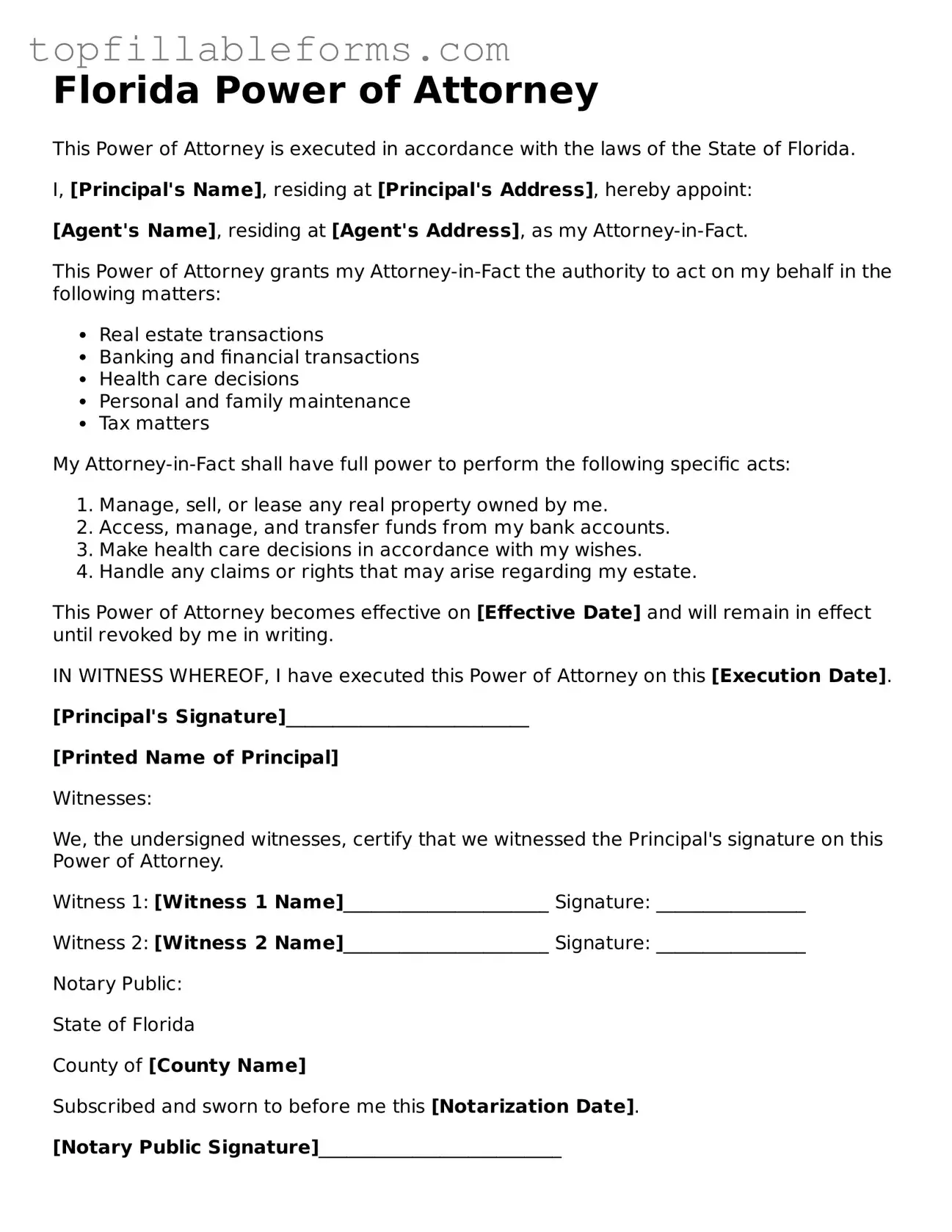Attorney-Verified Power of Attorney Template for Florida
A Power of Attorney form in Florida is a legal document that allows one person to grant another the authority to act on their behalf in various matters, such as financial or medical decisions. This form is crucial for ensuring that your wishes are respected when you cannot make decisions for yourself. Understanding how to properly execute and utilize this document can safeguard your interests and provide peace of mind.
Open Power of Attorney Editor Here

Attorney-Verified Power of Attorney Template for Florida
Open Power of Attorney Editor Here
Finish the form now and be done
Finish your Power of Attorney online by editing, saving, and downloading fast.
Open Power of Attorney Editor Here
or
▼ PDF File
